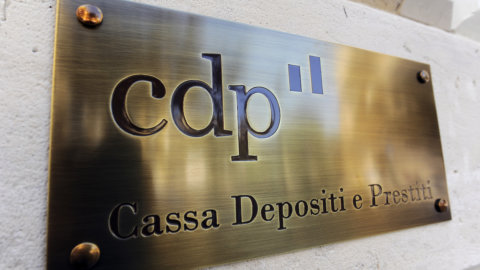How are the most important Italian manufacturing sectors reacting to the enormous political and economic tensions caused worldwide by the Ukrainian-Russian and Israel-Palestine conflicts and by the market crisis? Here are the results and forecasts of a sector of great importance for our country because its turnover is worth almost 5 percent of the national one. This is the FederlegnoArredo (Fla) supply chain and we talked about it with the president Claudio Feltrin. First the Federlegnoarredo-Fla identity card, i.e. from the panel to the furniture: production revenues (2022) of 56,7 billion euros equal to 4,6 percent of the national total, with 68 thousand companies, equal to 14,9% of the manufacturing total and 298 thousand employees, equal to 8% of the total.
Furniture and furnishing industry: after two years of growth, the slowdown
A supply chain of global importance which up to now has achieved success and conquered markets but which, after two years of even double-digit growth, finds itself having to deal with a slowdown in both the Italian market and exports. Claudio Feltrin, president of Federlegnoarredo, tells us what is happening and what will happen in the coming months.
“2023 had started well – he states – with a still positive first quarter, as companies felt the positive effects of the wave of orders from the previous two years, two truly exceptional years which however could not continue”. Feltrin, with the precision of analysis that comes from being an entrepreneur immersed in daily reality, also provides a more realistic picture of the two years of great sales. “After the Covid period, when housing costs remained stagnant, families found resources available to renovate and improve their homes.” And they began to spend, favored by a series of ecobonus galore that invited people to buy, change furnishings, appliances, wardrobes... Feltrin defines these boosters as real drugs for consumption, to which were added the inflationary effects that inflated price lists. “As a result, deadly distortions of the markets have occurred and this government has done well to intervene by placing limits.”
And for 2024 no improvement in sight
In 2023, after a first quarter of growth, the following three months and then the first half of the year recorded decidedly negative signs for the entire supply chain with a -5 percent of turnover“. In November – continues Feltrin – we will publish the usual Observatory of the past nine months and I can say that we do not expect improvements, not even for 2024 which will be a decidedly complex year." It is not only a question of inevitable slowdowns linked to internal factors, but mostly to the heavy consequences of the conflicts that are involving precisely those areas where our companies were achieving great results both in terms of image and business.
It should be underlined that for at least two years the companies ofItalian decor, mostly SMEs, are opening large single-brand showrooms at a rapid pace or in joint ventures with the best high-end and very high-end distribution partners. All over the world. But opening and keeping showrooms open requires an expensive set of services to retain a demanding clientele. That is, it is about demanding financing which, as happened with the conflict in Ukraine, may then prove useless: the rich Russian and Russophile markets, the Ukrainian one and the Eastern European countries have either closed completely or are partially blocked. “Our companies have thus looked for other outlets on the markets of the Middle East and Asia - says Feltrin - but the Israel-Hamas conflict has once again created slowdowns and difficulties." As for China, a particularly positive market open to Made in Italy is in decline due to the real estate crisis."
Furniture and furnishings: the consequences on revenues and exports
“The second quarter was particularly difficult with a -12 percent decline in the entire supply chain and the semester, thanks to the positive data of the first three months, had a less severe overall contraction, of 5,9% but with a negative trend both for the Italian market (-6,8 percent) and for exports (-4,5 percent). The Furniture macrosystem recorded fewer losses with -1,1 percent, a drop in exports of 3,3 percent". Only positive item are the sales of the Italian market with a +1,3 percent, due to the continuation of the positive effects of the investments of 2022.
The current scenario and the one that is emerging could be destabilizing for a sector of vital importance for the country. But no. “We are well equipped to deal with situations as complex as the current ones,” underlines Feltrin. “It's true, our members are SMEs but over the years they have consolidated and today boast a size and turnover higher than the average of other SMEs. While the average turnover of the latter does not exceed 830 thousand euros, that of the supply chain is 9,6 million with 31 employees, a number that is also significantly higher than that of other SMEs". Summary: thanks to design, technologies, eco-sustainability and investments at very high levels they will overcome the problems well before other manufacturing sectors.
The November Monitor will confirm the negative data
“As for the estimates for 2024, I remind you that in November we will make public the usual Monitor, built on interviews with a large sample of companies that represent around 40 percent of the total turnover of the supply chain. But I can already anticipate that for the whole of 2023 le only positive items will concern the Furniture macrosystem with a very slight increase of 0,2 percent in revenues and sales in Italy of 1,3 percent. Exports, however, will continue to slow down with -0,7 percent”.
As for the rest of the supply chain, the forecasts are decidedly pessimistic: revenues -8,5 percent, Italian sales -8,6 and exports -8,3 percent. It will therefore be vital, especially for the furniture sector, to focus on investments and initiatives for the future Furniture expo (Milan, 16-21 April) after some furniture companies - mostly the least structured - had shown some signs of disaffection... "This may have happened when the country emerged from Covid and the companies found themselves overflowing with orders and perhaps they believed that fairs could be done without. But now it's no longer like that, on the contrary." In the midst of an international crisis, with the progressive losses of expanding markets and a general impoverishment of families, the Milan Show is an essential and operational event.
Wood and furniture made in Italy: the primacy of eco-sustainability
Feltrin's mandate as President of the Fla was born under the banner of green transition for industrial sectors that already have record results also because it is the most advanced markets where the predominant share of exports goes that request it. “The Italian wood-furniture industry is third on an international level – as reported by the Symbola foundation of Ermete Realacci, an Italian excellence – it is first in Europe in circular economy and produces fewer climate-altering emissions than other large EU countries: 26 kg for every thousand euros of production, compared to 43 in Germany, 49 in France, 79 in Britain and over 200 in Spain. There are all the conditions to be a protagonist in the challenge opened by the EU and the major countries of the world to eliminate CO2 emissions by 2050 starting from a consolidated tradition".
With Feltrin the commitment becomes structured and translates into the survey in 2022 “Italian wood-furniture in the ecological transition”in collaboration with the Symbola foundation. The result is an original - and unique in terms of consistency - map of the paths undertaken by companies, from procurement to design, from production to end of life. The approach was so pragmatic on ten precise points that today Fla has rapidly implemented many firsts in terms of the circular economy. Starting from the decisive phase for the purposes of the green transition, that of the materials, the panels. “We are the best ever, the first in Europe – claims Feltrin – as much as 97 percent is made with recycled wood”. Since the beginning of 2022, these objectives have been translated into a guide with families of action necessary to achieve a complete ecological transition in the next five years. “In the name of a social commitment – as the Survey states – in line with the Assisi manifesto”. And with the first important results that the FLA will present from 7 to 10 November at Ecomondo in Rimini.





